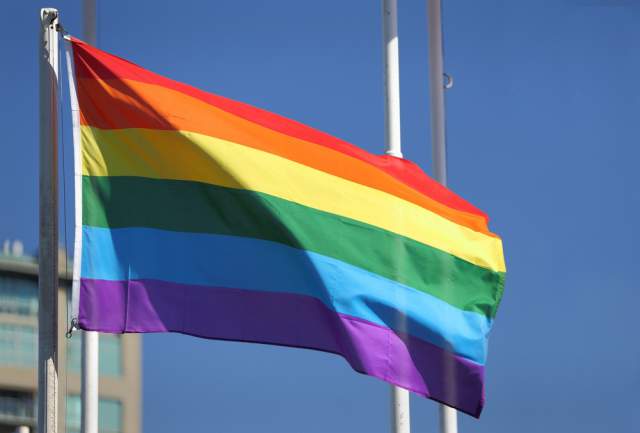Mississippi’s House Bill 1523 says, among other things, that public employees, businesses, and social workers cannot be punished for denying services based on the belief that marriage is strictly between a man and a woman. Same goes for people who act on the belief that “sexual relations are properly reserved to such a marriage” and that gender is determined at birth. It says the government can’t prevent businesses from firing a transgender employee, clerks from refusing to license a same-sex marriage, or adoption agencies from refusing to place a child with a couple who they believe may be having premarital sex.
As of Wednesday, HB 1523 has passed Mississippi’s House and Senate.
The “Religious Liberty Accommodations Act” must return to the House for to resolve differences, according to the Mississippi Business Journal. But it is expected to be approved there (it passed 80 votes to 39 in February). Then it will go to the desk of Republican Gov. Phil Bryant, who has championed religious liberty bills in the past.
Ben Needham, director of the southern LGBT advocacy group Project One America, told Buzzfeed Wednesday that the measure “is probably the worst religious freedom bill to date.”
But advocates of the bill, which is one of about 10 drafted by states across the country in response to the Supreme Court decision guaranteeing a right to same-sex marriage last summer, says that the legislation will protect the rights of those who disagree with the court’s decision.
“This is presenting a solution to the crossroads we find ourselves in today as a result of Obergefell v. Hodges,” Republican State Sen. Jenifer Branning said as she presented the bill to the Senate, according to the Jackson Clarion-Ledger. “Ministers, florists, photographers, people along those lines — this bill would allow them to refuse to provide marriage-related business services without fear of government discrimination.”
Later in her speech, she assured her colleagues, “It takes no rights away from anyone. It gives protection to those in the state who cannot in a good conscience provide services for a same-sex marriage,” according to New York Magazine.
The passage of the bill comes days after Georgia Gov. Nathan Deal vetoed a similar measure that had provoked outrage from Hollywood, the National Football League and a number of big businesses. North Carolina, meanwhile, is dealing with backlash to a recently-passed law that bars local governments from extending civil rights protections to gay and transgender people and prohibits transgender people from using public bathrooms according to their gender identity.
The Mississippi legislation is more sweeping than both those measures. It prevents the government from “discriminating” (through taxes, fines, withholding benefits, or other forms of retaliation) against a “person” (broadly defined as an individual, religious organization, association, corporation and other kinds of businesses) for acting on their religious convictions regarding sexuality and marriage. That includes employers, landlords and rental companies, adoption and foster care agencies, people and companies that provide marriage-related services (rental halls, photographers, florists, etc.).
The bill protects doctors who refuse to provide counseling, sex-reassignment surgery, fertility treatments and other services based on their religious convictions, and allows companies and schools to establish sex-specific policies regarding dress and bathroom use. It allows state employees to recuse themselves from licensing or overseeing a same-sex marriage, so long as they take “all necessary steps” to ensure that the marriage isn’t impeded or delayed as a result. And it gives foster and adoptive families license to “guide, raise or instruct” children as they see fit, a rule that Human Rights Campaign argues would make LGBT children vulnerable to being forced into “conversion therapy.”
The version of the bill passed by the House also would have allowed people who felt their right to religious exercise had been infringed by the government to sue the state; the Senate version gives the state sovereign immunity from such suits.
Gov. Bryant has not explicitly said whether he would sign the bill if it reaches his desk. But in an interview with WLOX this week, he said he didn’t think the legislation was discriminatory.
“I think it gives some people, as I appreciate it, the right to be able to say ‘That’s against my religious beliefs and I don’t need to carry out that particular task,'” he told the TV station.
Critics disagree.
“It is very broad and very dangerous,” Erik Fleming, a former Mississippi legislator who is now director of advocacy and policy for the state’s branch of the ACLU, told BuzzFeed. “It basically sanctions religious discrimination.”
“It is reminiscent of what happened 50 or 60 years ago in this same state,” Fleming told BuzzFeed. “People say that it is just religious, but there were people who had a religious belief that black and white people should be segregated, and you’re opening that Pandora’s box again.”
That same argument was made by the bill’s critics during the Senate debate on Wednesday, according to WLBT and the Associated Press. Sen. John Hohrn (D-Jackson) told his colleagues that measures like HB 1523 were the reason people “think badly” of the state.
“Why do we keep doing this to ourselves?” he asked. “We don’t need to put another stain on Mississippi.”
